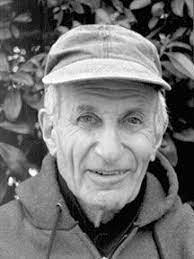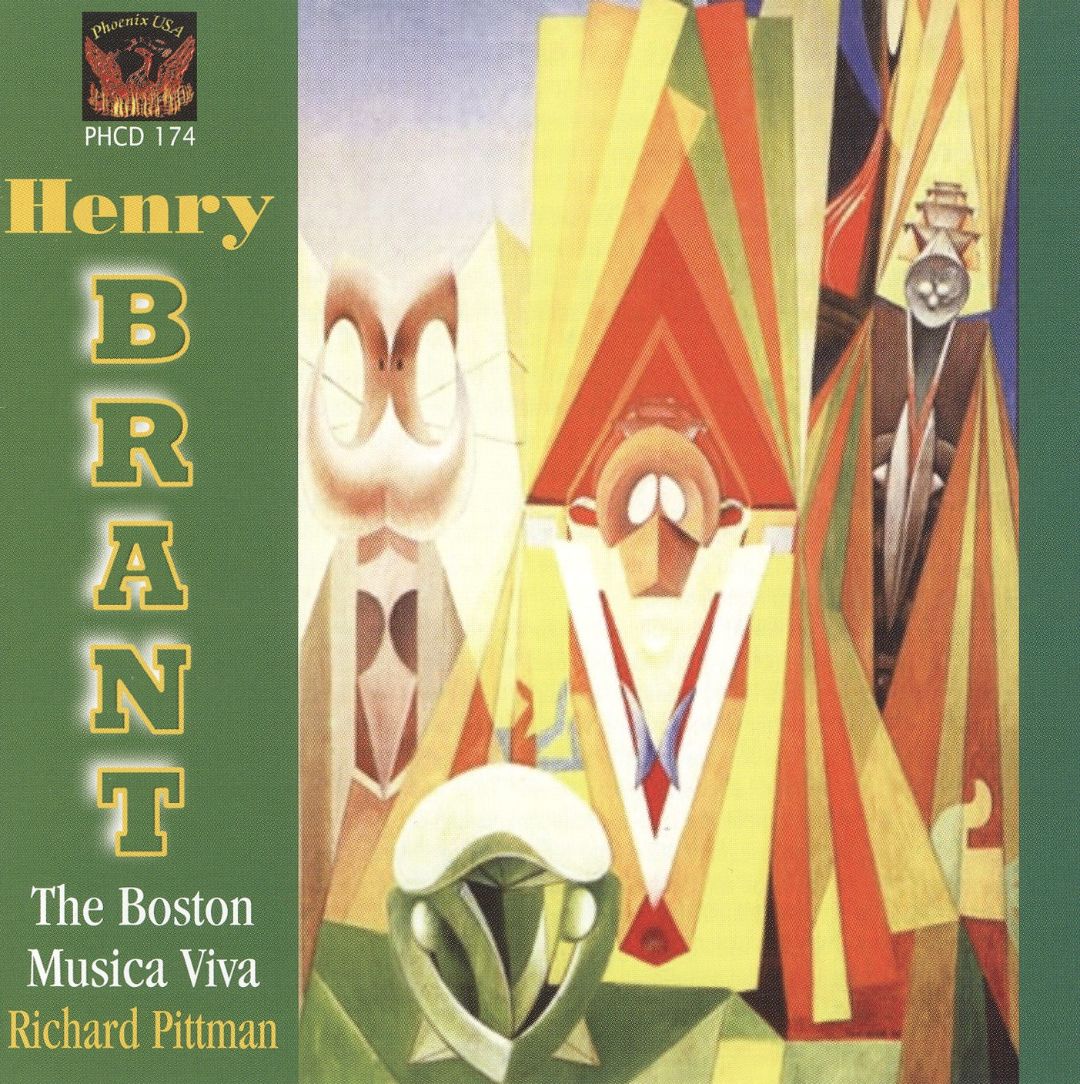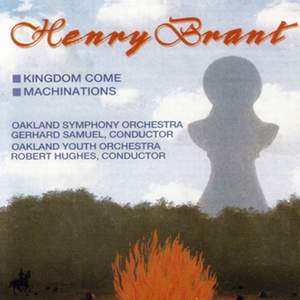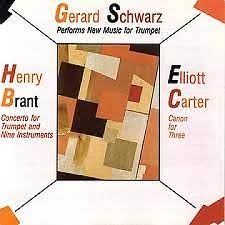
Brant, Henry
Born in Montreal in 1913 of American parents, Brant began composing at the age of eight. In 1929 he moved to New York where for the next 20 years he composed and conducted for radio, films, ballet and jazz groups, at the same time composing experimental works for the concert hall. From 1947 to 1955 he taught orchestration and conducted ensembles at the Juilliard School and Columbia University, and from 1957 to 1980 he taught composition at Bennington College. Since 1981, Brant has made his home in Santa Barbara. In 1950, Brant began to write “spatial” music, in which the positioning of performers throughout the hall, as well as on stage, is an essential factor in the composing scheme. His catalogue now comprises over 70 such works, each for a different instrumentation and each requiring a different spatial deployment. His works are also characterized by unusual combinations of instruments, His works are also characterized by unusual combinations of instruments, extremely large forces, and co-existent musical styles (e.g., Meteor Farm (1982) is a multicultural work for expanded orchestra, two choirs, jazz band, gamelan ensemble, African drummers/singers and South Indian soloists, each performing its traditional music). Among Brant’s many awards and honors are two Guggenheim Fellowships and the Prix Italia, which he was the first American composer to win. In explaining his compositional techniques, Brant wrote that he had “come to feel that single-style musicians could no longer evoke the new stresses, layered insanities, and multi-directional assaults of contemporary life on the spirit.”


